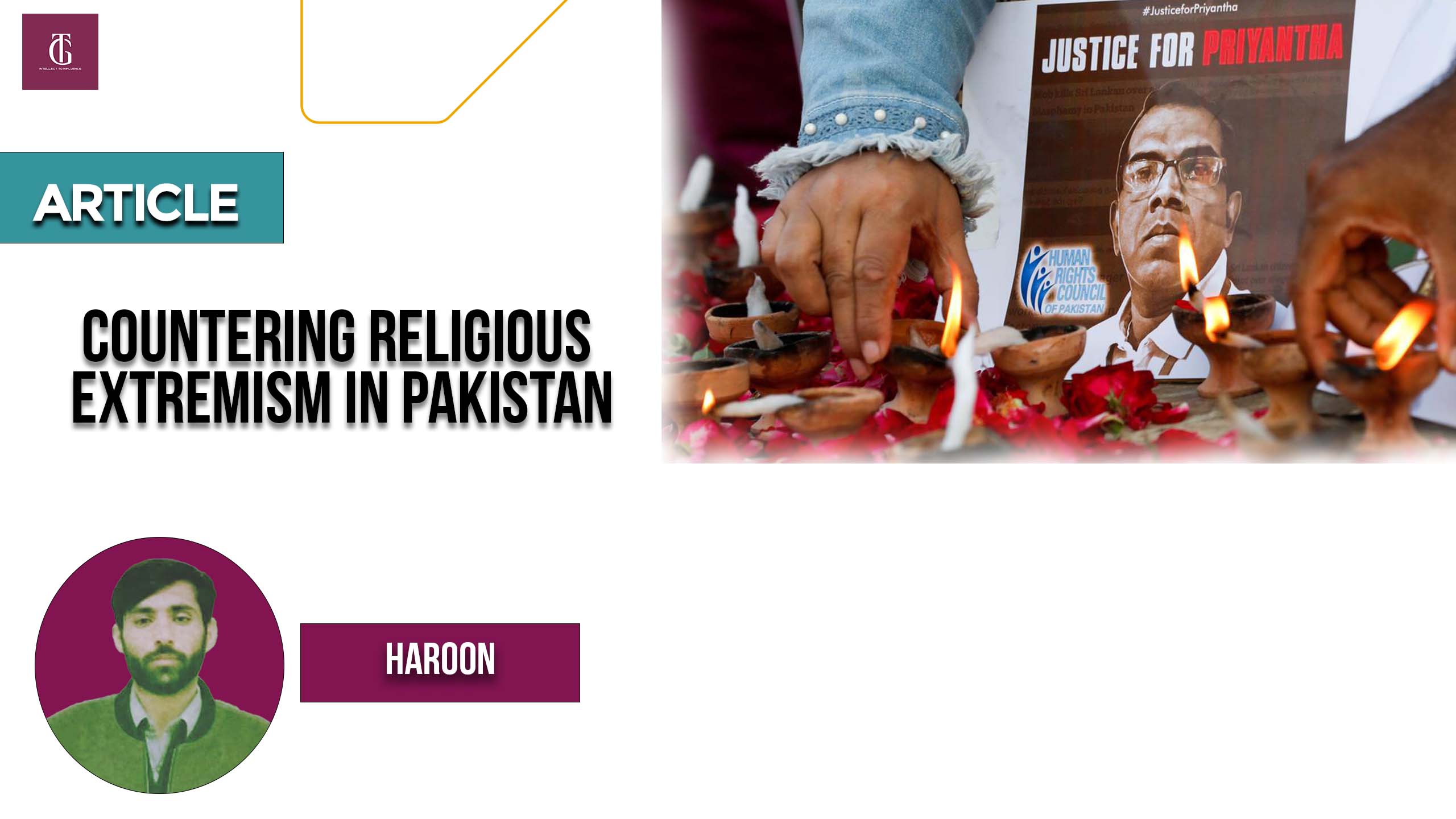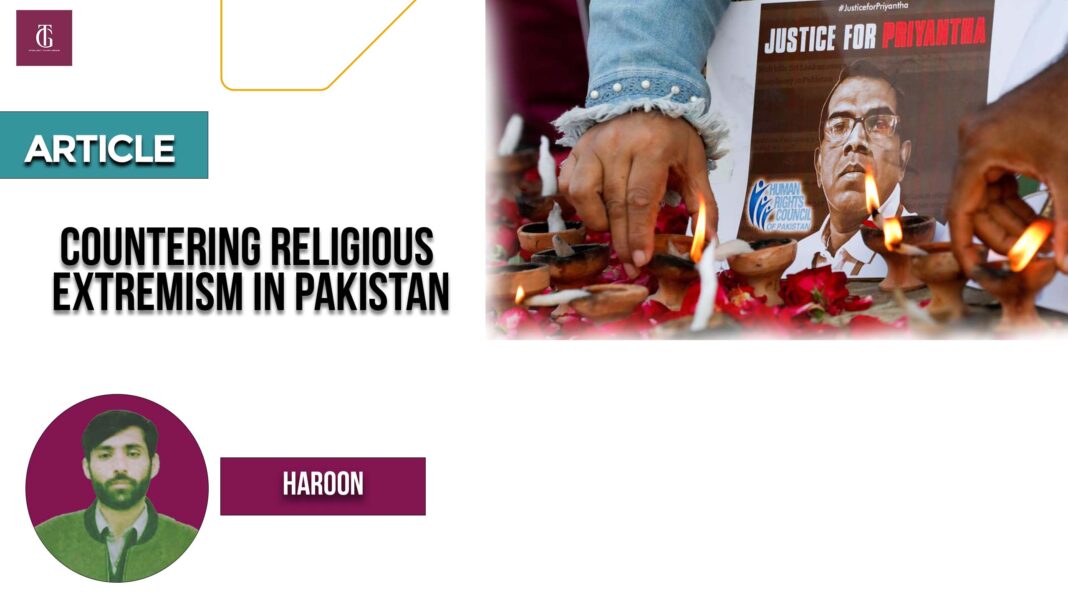
Pakistan is home to a diverse array of ethnic groups, languages, and religious communities. While Pakistan was established on the two-nation theory, providing a separate homeland for the Muslims of the Indian subcontinent, its founding fathers were determined to create a country that would accommodate religious minorities and serve as a safe place for minorities within its borders. Quaid-e-Azam emphasized the rights of religious minorities in his first speech after the creation of Pakistan, and his appointment of a Hindu law minister demonstrated his commitment to religious harmony. However, over the years, Pakistan has fallen victim to the menace of religious extremism, resulting in severe consequences for its people and society.
To comprehend the factors that have contributed to the growth of religious extremism in Pakistan, one must delve into historical events, radical ideologies, geopolitical influences, and socioeconomic factors. One pivotal moment was Pakistan’s involvement in the Soviet-Afghan War, which not only had a lasting impact on the region but also influenced the rise of extremism within Pakistan itself. As the Soviet Union invaded Afghanistan, Pakistan became the frontline in the fight against communist expansionism. With support from major global powers, Pakistan aided Afghan resistance fighters, inadvertently fostering the influx of weapons, foreign fighters, and radical ideologies. Tragically, this eventually led to the formation of militant groups within the country.
Another contributing factor has been the role of certain religious seminaries (madrassas) and leaders in promoting extremist interpretations of Islam and radical ideologies such as Wahhabism–A Sectarian brand of Islam. While it is essential to recognize that not all madrassas are involved in promoting violence or radicalism, some have supported militant groups, providing ideological and logistical assistance. Initially, these madrassas trained and recruited fighters to combat the Soviet Union, but later turned their sights on Pakistan itself, targeting religious minorities. Disturbingly, instead of condemning these acts of extremism, some religious leaders began praising those involved. This distorted narrative propagated a culture of intolerance, leading to the marginalization and persecution of religious minorities.
To reclaim the social fabric of Pakistan and provide security for all religious communities, addressing religious extremism must be a multi-faceted effort involving the government, civil society organizations, religious leaders, and educational institutions. Collaboration and cooperation are vital to counter radical ideologies, promote tolerance, inclusivity, and respect for diversity, and address the root causes of extremism. The main theme of the Book “The Power of Dialogue: Building Bridges in Pakistan” tells us the lessons of Cooperation and harmony. We need table talks to discuss it and seek solutions for it.
Education reform plays a paramount role in countering religious extremism. There are a lot of flaws in the curriculum taught in schools. students should know about other religions to foster a tolerant and harmonious society. There is a need to conduct a comprehensive review of the existing curriculum in Pakistan to identify any biased or extremist content. This process should involve educators, subject matter experts, religious leaders, community representatives, and scholars who can provide a well-rounded perspective. The curriculum should reflect the multicultural and multi-religious nature of the country, emphasizing values such as tolerance, respect, and understanding. Incorporate diverse perspectives and contributions from various communities to promote unity. By revising the curriculum and including subjects that foster critical thinking, religious tolerance, and human rights education, we can empower young minds to challenge extremist narratives.
Engaging religious leaders and scholars to promote a moderate and inclusive understanding of Islam is equally crucial. They possess the potential to debunk extremist interpretations and foster a culture of peace, coexistence, and interfaith dialogue. By guiding people from the pulpit of mosques and teaching the true essence of Islam, religious leaders can help eradicate the prevailing culture of extremism. Introducing modern subjects and scientific education into the syllabi of madrassas can play a crucial role in shaping the minds of young students and helping them understand the contemporary realities of the world. By incorporating subjects such as science, mathematics, social sciences, and languages, these educational institutions can provide a well-rounded education that equips students with critical thinking skills and a broader understanding of the world around them.
The inclusion of modern subjects in madrassa syllabi not only helps bridge the gap between religious education and mainstream education but also encourages students to think critically and engage with diverse perspectives. It enables them to interpret religious teachings considering scientific advancements and contemporary challenges, fostering a more nuanced understanding of religion that is compatible with the realities of the modern world. This integration of knowledge equips students to navigate the complexities of the 21st century and contribute positively to society.
However, the government needs to regulate the activities of madrassas and ensure that the education provided is in line with national objectives and values. Oversight and monitoring mechanisms should be put in place to assess the quality of education being imparted and to prevent the propagation of extremist ideologies. The government should collaborate with madrassas to develop a curriculum that strikes a balance between religious teachings and modern education, promoting tolerance, pluralism, and respect for diversity.
Furthermore, the government needs to take financial responsibility for funding madrassas and managing the salaries of religious teachers. By doing so, it ensures that these institutions are not dependent on private and potentially destructive elements for funding. This measure not only helps establish transparency and accountability but also ensures that the education being provided is not influenced by extremist ideologies or foreign interests. Proper funding and management also allow for the training and professional development of teachers, ensuring the delivery of high-quality education.
Media outlets also play a crucial role in countering extremist narratives. Responsible journalism, focused on unbiased reporting and amplifying the voices of moderation, can help counter the spread of radical ideologies. The media should diligently highlight the contributing factors to the growth of religious extremism, shedding light on the complex issues at hand. Just as they highlighted the reasons behind the tragic killings of Mashal Khan and Sri Lankans in the country, media organizations should provide platforms for open discussions and debates, encouraging diverse perspectives and challenging extremist rhetoric. The media should arrange debates and seminars to impart true religious education and highlight the flaws in the judicial system and blasphemy laws.
In a nutshell, religious extremism has had a profound socio-political impact on Pakistan, posing challenges to its stability, democracy, and social fabric. However, through a comprehensive approach that addresses the root causes, and promotes education and religious tolerance as depicted in a Book ” Tolerance and Harmony: Countering Extremism in Pa Enhance” enhances security measures, engages religious leaders, fosters international cooperation, and upholds human rights, Pakistan can overcome the grip of religious extremism. It is a challenging journey, but by working together, the government, civil society organizations, religious leaders, educational institutions, and media outlets can forge a path toward a united, inclusive, and peaceful society. Pakistan’s rich cultural and religious heritage can once again shine brightly, serving as a beacon of tolerance and coexistence for the world to admire. Let us join hands and combat religious extremism, ensuring a brighter and harmonious future for all Pakistanis.

Muhammad Haroon
Haroon is student of Political Science at Quaid-e-Azam University in Islamabad. With a passion for understanding the dynamics of politics and its impact on societies, he has embarked on a journey to acquire comprehensive knowledge in the field.






